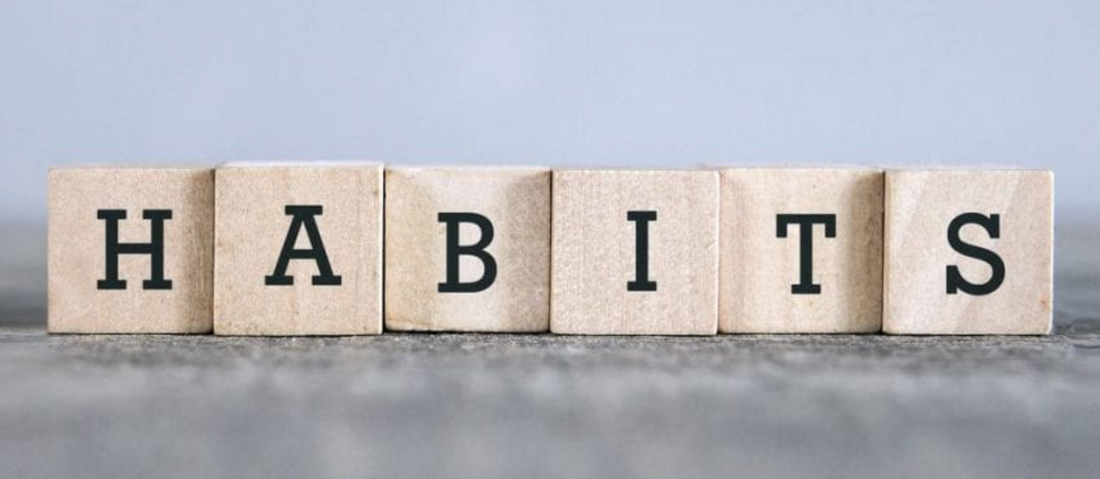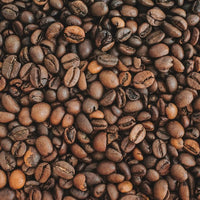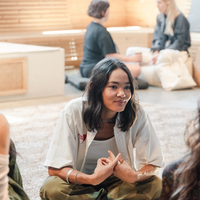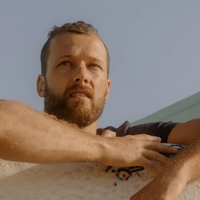“Habits begin as cobwebs and end up as chains.” - Spanish Proverb
Some years ago, I realized that my ability to make a career out of journalism and podcasting would ultimately come down to how I structured my day. This insight came about after reading a book called The Power of Habit: Why We Do What We Do in Life and Business. Charles Duhigg argues that for most of our day, we run on autopilot. When we perform a repetitive task, a part of our brain called the basal ganglia lights up. When we drive to work, for example, we often do it unthinkingly. We arrive at the office with no memory of how we got there. Thanks basal ganglia!
For many people, leaving home is the mental trigger that gets them into work mode. WeWork’s business model is predicated upon the assumption that people will be so much more productive in an office environment than at home, they’ll even pay for it. For many, returning home signals that it’s time to relax, and their basil ganglia tells them to crack open a Coors and fire up Facebook. But today, with humanity under house arrest, some of us (like me) need to consciously create new habits if we hope to get anything done.
When I became aware of the seriousness of the coronavirus, I spent a full week vacantly scrolling Instagram and texting images of a well-endowed black man to my closest friends. By the end of the week, all I had to show for it was stress, poor posture, and confusion. The idea that we need minute-by-minute news updates is a trap. If you were to never check Instagram again and instead spent 20 minutes a day listening to The New York Times podcast, The Daily, or made a point of watching PBS NewsHour each night, you would be more informed than 99% of the public.
Let me be clear: I don’t believe in maintaining productivity for the sake of productivity itself. American culture flogs us with the idea that if we don’t produce enough, we deserve to fall through the cracks — while the productive people step over us with caramel macchiatos in hand. Even if we aren’t in literal fear of losing our shelter, social media burdens us with the psychological terror that if we’re not continually posting, then we are unlikeable. It’s no accident that Instagram notifications take the form of little red hearts. If hearts are supposed to make us feel liked, what does their absence signify? Such feelings of unworthiness are the foundation of moral bankruptcy. Unworthiness tells us to keep our foot on the gas pedal without questioning if the road we’re on is headed for a cliff. One of the silver linings of this pandemic is that it gives us the opportunity to step back and reflect on the corrosive nature of our work-centric lives.
Whether you are using this involuntary downtime to focus on your career or ruminate about the nature of existence, building good habits will allow you to be less distracted, which in turn will improve your mental health.
When Neil Gaiman, the science fiction legend, was asked how he gets work done, he said that he always gives himself a choice: He can sit and do nothing, or he can write, but he can’t get up. Since doing nothing is one of the few tasks more excruciating than writing, Gaiman usually chooses the latter. Another writer, Neil Strauss, uses a free program called Freedom, which blocks internet usage.
A critical component to building new habits is offering yourself a reward at the end. According to Duhigg, we form habits in a three-step process: cue, routine, reward. The smoker feels anxious (cue), she lights up a Marlboro (routine), she gets the head rush (reward.) The same theory applies when forming good habits. Offering yourself a carrot is like making a deal with your inner child: “Finish your homework, and we’ll go to the movies.” As soon as I finish this essay, I plan to dive into a bag of peanut butter chocolate chips that’s calling my name.
One bad habit I’ve been trying hard to break lately is my reflexive urge to look at my phone. If it’s anywhere near me when I’m working, I may as well throw my computer out the window, because my level of productivity will be the same.
Too often, I wake up and go straight to Instagram. The most pernicious aspect of this habit is that even if I extricate myself from the demon later on, the morning has primed my mind to move to the beat of its dopamine hits, which makes the transition to focused work nearly impossible.
My solution these days is to keep my phone turned off in another room. Not on airplane mode, but off. When I do use it, I primarily keep it in black and white mode, because the multicolored Instagram icon is like a siren that shipwrecks my attention. If you think I’m crazy, try it: Use Instagram in black and white mode for one day, then turn it back to color, and notice the dopamine surging through your veins. (Here’s a quick guide on how to turn your phone on black and white mode.)
A few other habits that have kept me from falling into the pits of despair include exercise early in the day, 10 minutes of daily meditation, and wearing nice clothes. Putting on a button-up shirt even when I have no intention of leaving the house might seem pointless, but because I vacillate between feeling like I have five jobs or am unemployed, wearing decent clothes boosts my confidence.
Last year, I participated in a week-long silent meditation retreat at Mount Madonna in Watsonville, California. More than once during that trip, I was gripped by panic and the urge to quit. Luckily, I worked through those moments and now consider it to be one of the best experiences of my life. In many ways, we are all on a forced retreat, and the stakes to act well have never been higher. Coronavirus presents a unique psychological challenge, because it’s invisible and, at least at this stage, essentially hypothetical for most of us. We look outside and see the beckoning sky, but we know that socializing would put ourselves and others at serious risk. Compulsive behavior is always a risk, but these days it truly can kill. Much of our behavior is formed by habits, and right now building good ones can save lives.
By Kyle Thiermann




